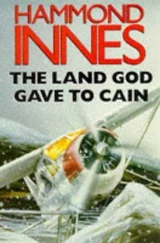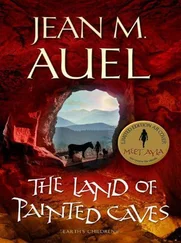PART ONE
Nowadays, beyond the cold horizon, the Atlantic is lit up like a fairy land at night with the fishing fleets from around the world raping the icy Benguela current; the Russians, the Japanese, Norwegians, Spanish, Portuguese, the South Africans, all with the most sophisticated gear, and factory ships for refrigeration. The South African boats bring their catch back to Walvis Bay, and the smell of fish hangs like a cloud. Yet it is said that you only cry twice in Walvis Bay: the day you arrive, and the day you leave. McQuade couldn’t understand it: the town was an eyesore, row upon row of squat, drab dwellings with corrugated iron roofs standing in dismal plots of desert sand, stretching back from the odiferous wharfs and the railway line. The shops are aggressively unattractive, and the sand blows down the streets and banks up in the gutters. Forty kilometres up the coast, beyond the enclave’s invisible borders, is the town of Swakopmund, with old Bavarian architecture, elaborate old public buildings and homes and nice hotels with gemütliche bars with flowering, shaded courtyards under the desert sun. Both sun-blistered towns were built at the same time, at the start of this century: the difference being (according to McQuade) that Swakopmund was built by real Germans with culture behind them, whereas Walvis Bay was built by Afrikaners who had been detribalized from Europe for three hundred years. Yet he was always happy when he saw the flat, drab port come up over the horizon and he felt an extraordinary affection for the place. Maybe that was because anybody would be happy coming back after four weeks on the heaving Atlantic, or maybe it was the steamy thighs of the Stormtrooper awaiting him – (‘When will you marry me, you englisches Schwein , you cad, you unspeakable bounder?) (‘ Liebchen , I’m still married.’) ( Liar …) Or maybe it was the magnificent desert. But it was more: there was a colonial youthfulness about this ancient land, a sense of optimism, a comradeship amongst its people, almost a conspiracy against the heavy hand of faraway Pretoria. He had been back two years and the company was still in debt, but although it was still the plan to sell up as soon as possible, go back to Australia and start that passenger line, till then he was glad he had come back to Africa. That is how McQuade was feeling that afternoon of the 20th April as his trawler, Bonanza , came churning through the oily harbour of Walvis Bay to off-load her refrigerated catch, and give the crew a few nights’ shore-leave. He tied the Bonanza up alongside the Kuiseb wharf, where he always sold his fish, and left Potgieter in charge while he went to the bank to draw some money for the Coloured crew.
McQuade and Tucker and the Kid and Elsie went uptown in the Kid’s new car. The Kid’s real name was Nigel Childe and he used to be a captain-gunner in the All England Whaling Company fifteen or more years ago. His father had been chairman of the board and the Kid had come into a lot of money, but he had spent most of it before McQuade persuaded him to invest in Sausmarine. The Kid could not afford this new car, but said that he could not afford to do without it either on account of he was now forty years old, a sombre anniversary for a hedonist, and he was madly in love with his wife, Beryl the Bitch, who was always threatening to leave him; while he was at sea, she prepared long memoranda of her grievances. Today the Kid was hurrying uptown to the dentist to have his new smile fitted, which he could also ill-afford, as a surprise for Beryl: last month the dentist had filed his upper teeth down to points and fitted temporary caps while his smart permanent ones were being made, and now he wished he’d kept his own old ones. Hugo Tucker was the ship’s engineer, the smallest ex-shareholder in Sausmarine, and he could play the mouth organ, music as mournful as his countenance. Tucker was always worried, often about the Bonanza ’s engines, mostly about his own money, and always about his wife. He was a South African but married to Rosie, an Australian who used to earn her very own money as a dress-maker in Adelaide – and now where was she? – broke in fucking Walvis Bay! From heaven to hell in one airline ticket, and all because of McQuade, the Kid and Elsie and their hare-brained schemes. Elsie’s real name was L. C. Brooks, the ship’s cook and book-keeper, who had been with McQuade and the Kid on the whalers in the old days. Elsie did not have woman-trouble because he did not like women but now that he was over fifty he had given up the other way too. ‘There’s nothing more pathetic than an ageing queer,’ Elsie said, ‘I’ll just bite the bullet and grow old gracefully.’
They all got into the Kid’s new car. It was a Renault and he called it Rene because it was electronically programmed to speak to him. ‘ Bonjour , Rene,’ the Kid said as he switched the ignition on.
Rene said: ‘ Fasten your seat belts please .’
‘You heard him,’ Kid said, ‘fasten your bleedin’ seat belts before he calls the gendarmes.’
Rene said: ‘ Oil pressure is satisfactory .’
‘Merci, Rene,’ Kid said.
‘ Water pressure is satisfactory .’
‘Merci, Rene.’
‘ All systems are satisfactory .’
‘Merci, Rene.’ He put the car into reverse.
‘ Release your handbrake ,’ Rene requested.
‘What happens if you actually drive off with your handbrake on?’ Tucker asked with morbid professional interest.
‘He screams Mon Dieu, mon Dieu! and heads straight for the AA.’
They drove out of the sandy compound, into Oceana Road. There were big oil tanks and acres of container-yards on the raw desert shore, and the sand lay across the tarmac road in thick streaks and ridges. They drove past the fishing compounds and the Kid said mournfully, ‘At least you’ll grow old gracefully with your own teeth to bite the bullet with, Elsie.’
‘But why did you do it?’ Elsie complained.
‘She wrote me this memorandum,’ the Kid said, ‘which went: “Nag-nag, nag-nag, and furthermore I wish you’d do something about your teeth.” And that got me right here.’ He tapped his heart. ‘She’d never complained about my teeth before.’
‘The only time she won’t complain is when you strike an oilwell in your backyard!’
‘Please,’ the Kid said. ‘Please, don’t talk about her like that.’
‘I’m very sorry,’ Elsie said firmly, ‘but why don’t you let her go if she’s always threatening to leave, instead of borrowing thousands of rand to have your perfectly good teeth filed down like a goddam Amazon headhunter. Honestly, what you boys do for women!’
‘We don’t want to grow old gracefully, Elsie,’ McQuade said. ‘We want to grow old shagged out.’
‘I’m serious,’ Elsie said seriously. ‘Look at you all! You’re all a mess! Kid should be a millionaire and all, but what is he? – an ageing playboy! And look at you, James, the Stormtrooper’s always throwing tantrums because she’s thirty-five and wants to get married so you can spend the rest of your life supporting her—’
‘In be- yoo -tiful condition for thirty-five,’ the Kid murmured.
‘And look what happened to you when you did get married: Vicky writes you a Dear John letter while you’re in prison—’
‘It wasn’t exactly a Dear John,’McQuade corrected mildly.
‘But the state you were in when you came to England, and the money you spent looking for her! You were all screwed up for years, but look at you now, forty years old and with all your brains, you should be at the top of the tree, but instead you’re a rolling stone who’s gathered no moss. Look at Tucker – every penny he earns he gives to Rosie but does he get any gratitude? Moan, moan, moan.’ He snorted. ‘And now Kid and his stupid new teeth!’
Читать дальше












